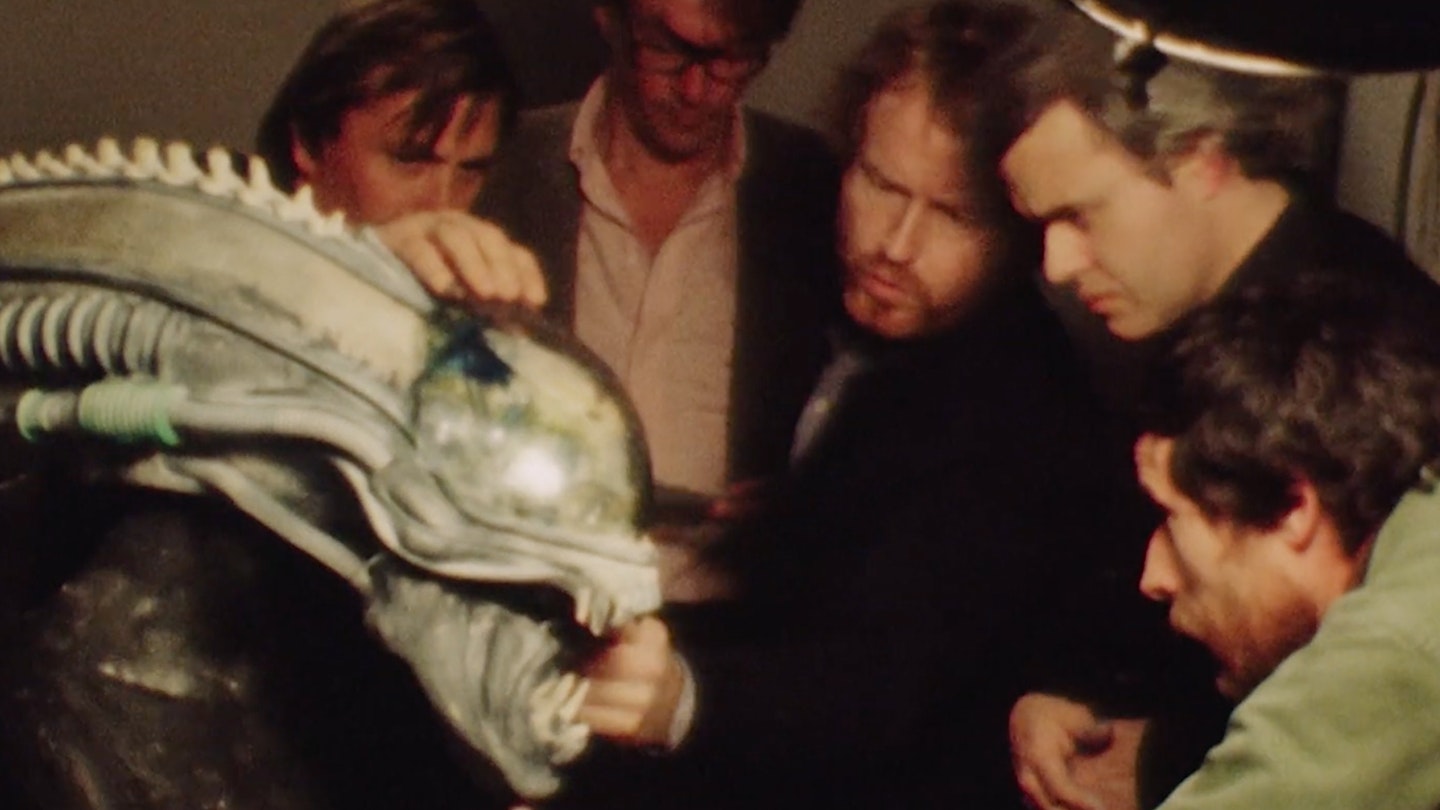Memory is hardly the first documentary to attempt to get under the obsidian, acid-bleeding skin of the Xenomorph. Practically every DVD and Blu-ray release of Ridley Scott’s influential sci-fi has come with a doc attached, even the 1987 LaserDisc. But this feature-length take from director Alexandre O. Philippe has loftier ideas than any studio-mandated featurette.

It begins with a slightly bonkers pre-titles sequence in the Temple of Apollo in Athens, as three alien witches awaken from a lengthy slumber: these are the Furies, the Greek mythological goddesses of vengeance. It’s a baffling, disorientating set-up, though what follows is ultimately a fairly straightforward talking heads documentary format — but the opening gambit clearly hopes to establish one of the film’s key arguments: Alien, Phillipe argues, is the manifestation of all our myths, a nightmare born of centuries of dread found in cultural artefacts and our collective unconscious.
It makes for a compelling case, but it doesn’t entirely feel like the final word on the film.
“I didn’t steal from anyone,” insists Alien’s screenwriter, Dan O’Bannon, in archive footage — “I stole from everyone.” The film’s contributors (which include Empire contributing editor Ian Nathan) invoke a vast, fascinating array of influences that led to the facehugger and friends, including Francis Bacon, Hieronymus Bosch, H.P. Lovecraft, parasitic insects found in nature, and the Mary Celeste, the ‘ghost ship’.
O’Bannon, who died in 2009, plays a surprisingly large role in the story, with his wife lovingly recalling his curious quirks (he once faked a UFO landing with his father). The writer is not often credited so significantly in the retelling of the Alien story, but his script (which had the working title of ‘Memory’, hence the doc’s title) evidently had a feverish mind that struggled to express itself until it found kindred spirits in director Ridley Scott and designer H.R. Giger. Together, both consciously and unconsciously, they created a dark parable in which almost any interpretation can be applied. Alien is “more than an allegory”, argues one contributor. “It taps into everything.”
It makes for a compelling case, and will undoubtedly have you reaching for a rewatch. But it doesn’t entirely feel like the final word on the film. Some cast and crew are featured, including Tom Skerritt and Veronica Cartwright, but Ridley Scott and Sigourney Weaver are conspicuous by their absence. And while Philippe’s last film, the Hitchcock documentary 78/52, had a clarity of vision in telling the story of Psycho’s shower scene, Memory is more muddled, flitting between thematic analysis and more run-of-the-mill BTS trivia; the blow-by-blow of the chestburster sequence feels plonked in for contractual reasons. As groundbreaking as Alien was, Memory seems quite tame, its aspiration towards highfalutin ‘film essay’ territory stymied by such a conventional format. Not quite the final report from the commercial starship Nostromo, then — but as an ardent love letter to a classic, it does the job.
